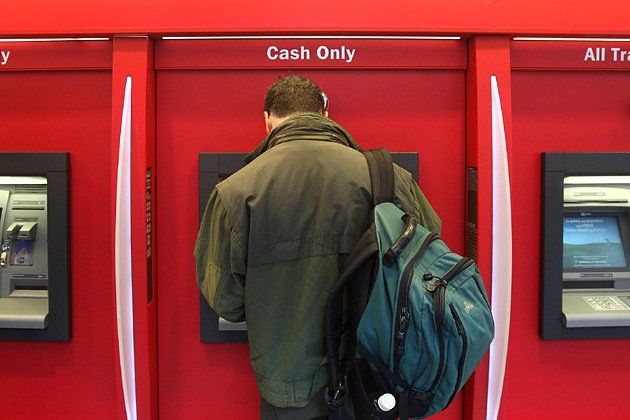
If people can no longer count on rising home values and the stock market as a way to build nest eggs, how are the average Joes among us ever going to accumulate any wealth?
Following disappointing news out of both the housing and stock markets, these two big wealth generators cannot be relied upon as they have been in the past decade. In fact, sales of existing homes dropped by 27.2 percent during the month of June, according to the National Association of Realtors. It's the lowest it's been since 1995. The New York Times devoted several inches of copy to mapping out the demise of what it called the real-estate gold rush. Gone are the days, the Times wrote, of inflated home prices and home-equity loans that, in turn, funded retirement accounts, summer vacations, or college educations. At the same time, wary investors have been fleeing the stock market in favor of government-backed bonds and more conservative investments.
"It clearly suggests that the extent to which people want to rebuild their wealth, they're going to have to contribute more to their savings and 401(k) accounts," says Scott Hoyt, senior director of consumer economics at Moody's Economy.com. The personal savings rate has already crept up during the recession. It hit a high of 6.4 percent in June 2010, compared with 2.1 percent in 2007, according to the latest data from the U.S. Department of Commerce.
With little credit available, consumers have no choice but to pare back their lifestyles, cut spending, and keep larger cash reserves on hand. "The game really has changed. People are not expanding their spending, even as their incomes come back," says Geri Eisenman Pell, a private wealth adviser in New York. Other people are delaying retirement, selling second homes, or considering renting rather than owning as a way to save even more money, Pell says.
The shift in attitude toward the stock market and housing harks back to the 1950s-style of personal finance, says Leonard A. Carlson, an associate economics professor at Emory University. Then, housing was seen as a product to consume rather than as an investment, much like a car. . Following World War II, Americans put money in savings-and-loan accounts that earned a little interest each month. "There was no big, rapid accumulation," Carlson says. That generation also did not contend with flat wages, or with massive college debt, since many returning veterans attended school for free as part of the GI Bill.
Government policy is not headed toward bailing people out, so in the short term people will have to save as much as they can to feel flush again. The problem with this more frugal approach? For many people who have experienced a bout of unemployment, the ability to save money, especially since many job seekers took pay cuts during the recession to return to the labor force, is harder than ever. Saving in the short term poses a challenge when wage growth remains stagnant, and although people may not rack up the same credit-card debt they once did, their salaries have not risen to meet the increased costs of living.
The big economic takeaway from this: consumer spending most likely will not lead the economic recovery. With diminishing amounts of home equity, a high unemployment rate, and a roller coaster of a stock market, it's too much to ask people to do it for the good of the country and buy that new car, boat, or refrigerator.
Uncommon Knowledge
Newsweek is committed to challenging conventional wisdom and finding connections in the search for common ground.
Newsweek is committed to challenging conventional wisdom and finding connections in the search for common ground.
About the writer
To read how Newsweek uses AI as a newsroom tool, Click here.








